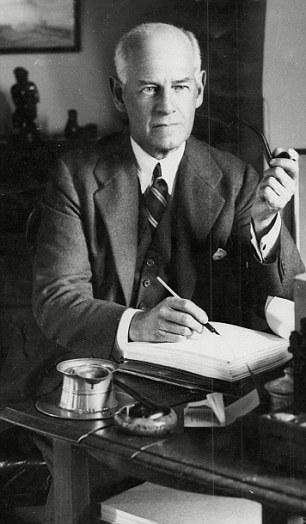
John Galsworthy was born in Coome, Surrey, on August 14, 1867, into a well-to-do bourgeois family. His father was a lawyer, a director of the London Company. John graduated from Oxford University. In 1890 he became a lawyer, but his professional career interested him very little. John preferred to be a free man, he loved to read and travel.
In 1897 Galsworthy published his first book under the pseudonym John Sinjon. It was a collection of short stories, The “Four Winds”. In 1898, the writer's first novel, “Jocelyn”, was published. A second novel came out in 1900. - "Villa Rubain." In 1901 a collection of short stories was published, which already mentioned the Forsyth family.
In 1904 Pharisee's Island was published, a work Galsworthy published under his real name. In 1905 Galsworthy married. In 1906 the novel “The Proprietor” was written. This work earned Galsworthy a reputation as a serious writer. The novel was the first volume of the Forsyte Saga cycle, which then grew (1906-1921) to five novels and an accompanying collection of short stories. The second cycle - about a new generation of Forsythe family, entitled "Modern Comedy" was written in 1924-1928. Another series - a trilogy on the Charwell family ("The End of the Chapter") - the writer created in 1931-1933. Galsworthy wrote not only novels and stories, but also plays.
He was a philanthropist, campaigned for social reform, called for the revision of laws on censorship, divorce, minimum wage, women's suffrage. Galsworthy was a very hardworking writer. He wrote 20 novels, 27 plays, three collections of poems, 173 short stories, five collections of essays, at least 700 letters, and many essays and notes of various kinds.
In 1929 John Galsworthy received the British Order of Merit. In 1932 he was awarded the Nobel Prize for Literature "for the high art of storytelling, the pinnacle of which is “The Forsyte Saga”. A representative of the Swedish Academy said: "The author has traced the history of his time through three generations, and the fact that the writer has mastered with such success an extremely complex material, both in volume and depth, does him credit. "The Forsyte Saga is a notable phenomenon in English literature."
By the time the Nobel Prize was awarded, Galsworthy was gravely ill.
Before his death he had instructed himself to give all his funds to PEN (Writers, Essayists, Novelists).
Galsworthy was awarded honorary degrees from Trinity College, Dublin University, Cambridge, Oxford and Princeton Universities, the Universities of Manchester and Sheffield.
Galsworthy had a habit, which he observed regardless of any external circumstances: to write every morning.
Polnikov Alexey , librarian of the Department of the International Book

